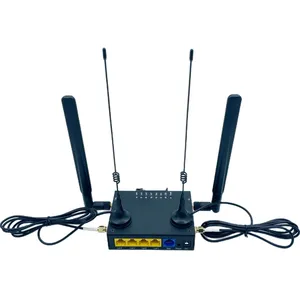
All categories
Featured selections
Trade Assurance
Buyer Central
Help Center
Get the app
Become a supplier

(8955 products available)

























A network appliance is a device that performs a dedicated function for computer networks. These tasks generally involve protecting, monitoring, or optimizing data flow over the interconnected systems. Some examples of what they may do include firewall protection, intrusion detection, network monitoring, and optimizing data flow.
Network appliances are computer systems with hardware and software specifically designed to carry out these tasks. They are reliable and secure because they are engineered with purpose. The types of network appliances that exist often depend on the function they serve within a computer network.
However, many can be grouped into a few categories. The first category is a wide area network or WAN appliance. These appliances connect multiple network locations over a wide area. Locations separated by many miles can communicate with each other because of these devices.
The second type of appliance is a Local Area Network or LAN appliance. These devices connect network locations that are relatively close to one another, like within the same building or office space.
The third type of network appliance is a metropolitan area network or MAN. These devices connect locations over a medium geographic area. Examples of a MAN connection are appliances that connect network locations in the same city.
The second type of network appliance is a Local Area Network or LAN appliance. These devices connect network locations that are relatively close to one another, like within the same building or office space.
The third type of network appliance is a metropolitan area network or MAN. These devices connect locations over a medium geographic area. Examples of a MAN connection are appliances that connect network locations in the same city.
The fourth type of network appliance is a dedicated appliance. These network-connected devices serve a specific purpose and are not intended for general use. They perform only tasks essential to their designated function and are not used for other activities.
The fifth and final type of network appliance is a converged appliance. These devices combine multiple functions into a single appliance. Their purpose is to simplify the management of network resources and increase efficiency.
The Network Appliance has its particular functions and features which are as follows;
Network appliances serve various industries and organizations that depend on robust, specialized networking solutions to meet their operational needs. Here are some common applications of network appliances:
Network appliances are important assets for many businesses. When sourcing network appliances for a specific business or enterprise, a few factors must be considered to ensure they get the right fit for the business.
Volume of Operation
The first step in the decision-making process is identifying a business's operational needs and objectives. The right network appliance is better capable of handling the volume of tasks and operations if businesses can calculate their data traffic, user numbers, application types, and desired performance levels.
Scalability
Businesses should consider choosing network appliances that can smoothly integrate with their existing system and infrastructure. It is important to evaluate current network architecture, system compatibility, and deployment options so that flexible integration can be achieved.
Customization
Many businesses have specific network requirements; thus, the many configurable options offered by network appliances are important for tailoring network settings, security policies, and performance thresholds to those requirements. This enables businesses to provide customized solutions that suit their industry and operational needs.
Costs
The variety of costs related to network appliances, including initial outlay, licensing models, maintenance expenses, and the prospective costs associated with scaling and upgrading, must be weighed against expected benefits. It is important to choose a network appliance that offers the best value for money over its entire lifecycle.
Vendor Support
Choosing a reliable vendor and evaluating support services is crucial for successfully deploying network appliances. The vendor's network appliances expertise, reputation, and understanding of the specific market can provide valuable insights and assistance throughout the selection and implementation process.
Regulatory Compliance
Businesses that handle sensitive data or operate in regulated industries must ensure that their network appliances comply with relevant laws and regulations. Network appliances with security features and functionalities that meet compliance requirements, such as data protection, privacy, and industry-specific standards, help organizations maintain regulatory compliance and avoid legal issues.
Management and Monitoring
Businesses should consider the management and monitoring capabilities of network appliances. With tools for centralized management, visibility into network performance, and proactive monitoring, incidents can be resolved quickly, network operations can be streamlined, and network health can be maintained.
Advanced Features
Organizations can benefit from improved network performance, security, and usability by evaluating the advanced features and functionalities of network appliances. These additional capabilities can distinguish among different vendors and models and provide enhanced value and functionality to meet specific business requirements.
Q1: What is the difference between a network appliance and a server?
A1: The primary difference between a network appliance and a server is that network appliances are purpose-built devices designed for specific network-related tasks, while servers are general-purpose computing machines that can provide various services to network-connected computers and devices.
Q2: Are network appliances security appliances?
A2: Yes, some network appliances are security network appliances, such as firewalls and intrusion detection systems, which are specifically designed to protect networks and ensure secure communications.
Q3: What benefits do network appliances offer over servers?
A3: Network appliances offer the benefits of better performance, wider availability, and lower cost of ownership compared to servers. Since network appliances are built for specific functions, they can perform those functions more efficiently, which reduces operational costs.
Q4: What role do network appliances play in networks?
A4: Network appliances carry out essential tasks like traffic management, data storage and backup, security measures, and communication optimization. They help keep networks running smoothly and securely.